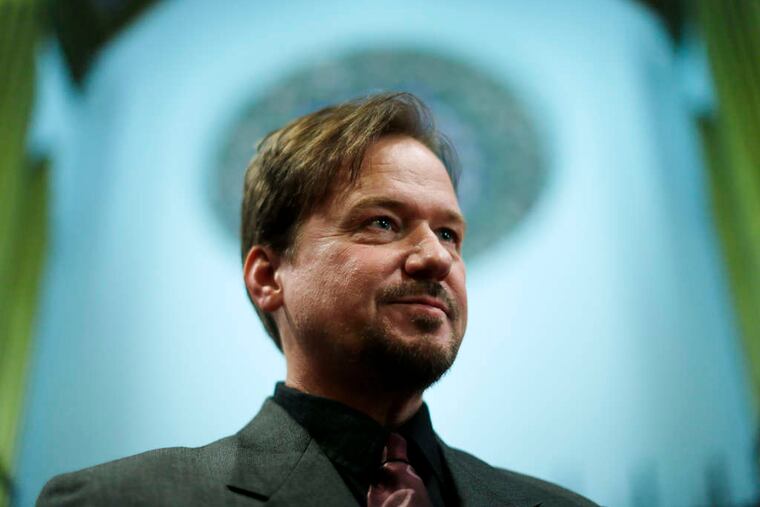Local Methodists react to proposed split over LGBTQ issues
News of the agreement was greeted with relief and sadness, a regional church leader said.

There was a bittersweet mix in the reactions that Bishop Peggy A. Johnson heard after Friday’s announcement that leaders of the United Methodist Church had reached an agreement that would allow members opposed to gay marriage and the ordination of LGBTQ clergy to form a new denomination.
There was “lots of jubilation" and relief that years of painful internal battles might finally be coming to a close, said Johnson, who leads the 400 congregations in the Eastern Pennsylvania Conference. But that was tempered by people who don’t want a separation.
“There’s a sense of grief and sadness that we would consider a split of any kind,” Johnson, who is based in Valley Forge, said Friday night.
“It’s not unheard of in the history of churches,” she said. “People have a way of splitting up.”
Johnson, who separately oversees churches in Delaware and Maryland’s Eastern Shore, said she expected the agreement — the Protocol of Reconciliation and Grace Through Separation — to be approved in a vote at the next general conference, scheduled for May in Minneapolis. Significantly, the agreement pledges $25 million to the “traditionalist” denomination, and $2 million to any other new denomination that wishes to leave. The plan also calls for $39 million to support “ministries for communities historically marginalized by racism.”
Assuming the agreement is approved, Johnson said, she expects about 10 churches in the Eastern Pennsylvania Conference to leave. “But I’m honestly not sure.”
The Rev. Frank Schaefer, the former Lebanon, Pa., pastor who was briefly defrocked for officiating at his gay son’s wedding, said the agreement was “really the best solution for everybody involved.”
Although Schaefer was found guilty of breaking doctrinal law by a jury of his peers at a 2013 trial in Chester County, his ministerial credentials were restored the following year by the church’s highest judicial board, which ruled on technical grounds and not on the ban on gay marriage.
“I’ve been a proponent for a split of some kind for many years, because I saw the inevitability of it,” said Schaefer, now the pastor of University United Methodist Church near Santa Barbara, Calif.
He also said he expected “some splintering” beyond the two denominations.
Johnson speculated that the $2 million allocation for additional denominations could be for a third group that finds the church, even without a ban on gay marriage and ordination, still falling short in supporting LGBTQ rights.
By allowing the factions to go their own ways, Schaefer said, “we’re all going to be a little happier."
On Twitter Friday afternoon, Zachary Wilcha, executive director of Independence Business Alliance, which he describes as “Greater Philadelphia’s LGBTQ chamber of commerce,” wrote in reaction to the news: “I was raised in an affirming, welcoming, small-town Methodist congregation. It set my moral compass. It still heavily influences the way I think about service in my personal & professional life. I hope a split heals all who suffered from the leadership’s accommodation of bigotry.”
Another user, who identified himself as Levi S. Harris, responded: “It won’t help the LGBTQ kids left behind in the retrograde parishes. No great solutions, but as a former Southern Baptist preacher’s kid, I feel for those who will be stuck in a hateful branch of Methodism without the affirming witness of the other branch to moderate it.”
Wilcha replied: “Definitely not a perfect solution, but I think it’s a step in the right direction.”